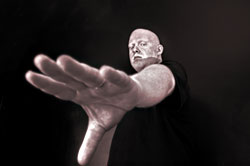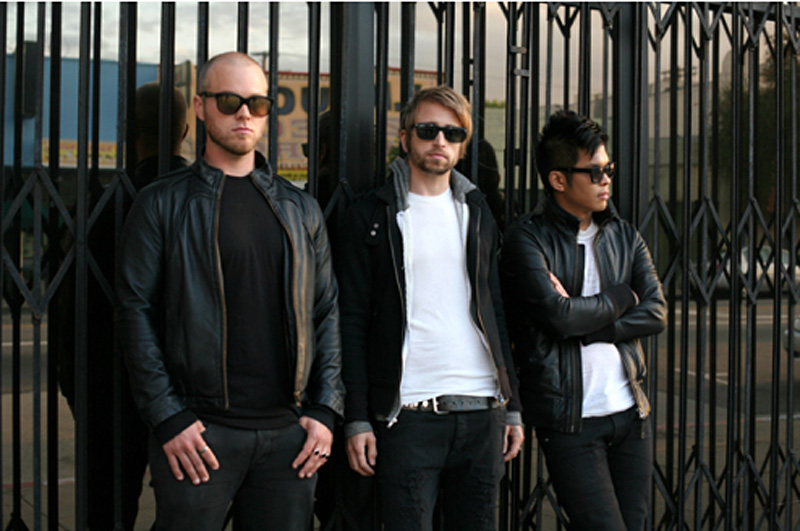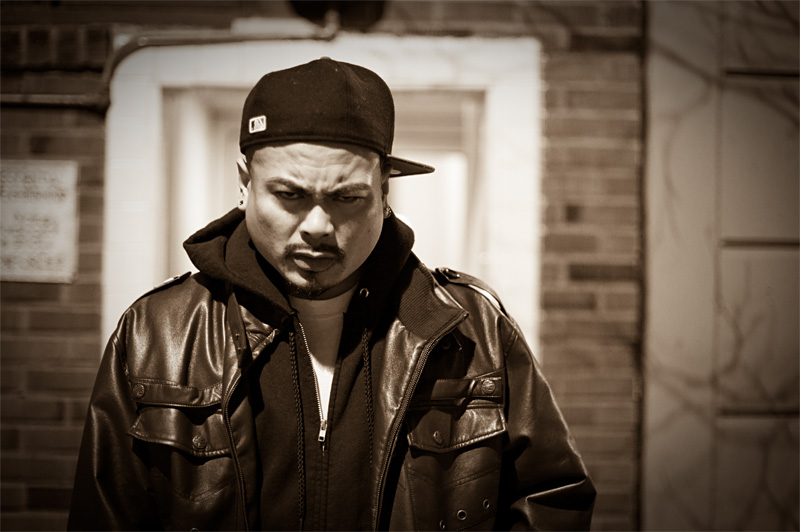It’s almost a creation myth, the story of how a construction worker named Marc Smith started a poetry-reading series in a Chicago jazz club back in the mid-’80s that grew into a worldwide movement of souls with loudspeakers for lungs. Smith based his little gathering, called “Uptown Poetry Slam,” on a few principles, the most important of which, especially for those who heard the music in their words and migrated into the studio, is the fact that it was a competition. Just like the back-alley ciphers formed in Brooklyn around the same time, this new poetry emphasized lyrical one-upmanship and performative flair as much as what was said, or rather read.
In other words: This wasn’t “Kumbaya” in a coffee shop—it was expression, if not in the streets, then of the streets.
Saul Williams, one of the chief purveyors of what became known as slam poetry, learned this lesson well. Ever since his career received a hefty boost from a 1998 HBO documentary titled Slam Nation—which followed him and three others during their journey to the World Cup of slam poetry, the National Poetry Slam—he’s been on the grind, writing books, acting, and, yes, making albums. And it is the latter medium (more than any other Williams and his colleagues have found themselves working in) that provides the closest corollary to the essence of their original art form.
Which is why Brother Ali, despite the fact that he’s not labeled as such, can call himself a slam poet. After all, the Minneapolis MC’s motto is “Our songs are supposed to be the voice of our soul.” All one needs to prove it is to check the opening of each man’s latest album. Both are as defiant as they are declarative, a fist in the face to challengers and a neon-lit example of their doing that which all poets strive to accomplish—make meaning.
On The Inevitable Rise and Liberation of NiggyTardust!, Williams screams: “Can you feel it?/Nothin’ can save ya/I’m tougher than bullets so, baby, pray to your savior/I’ve never been shot/But I betcha I’m braver/I’m taking my spot, nigga, I ain’t afraid to…be me!” And on The Undisputed Truth, Ali, in typically aggressive fashion, says: “I came in the door, 1984/Paint on the wall, got chased by the law/Once got stole in the face for the flows/Was never given the zone, had to create my own.”
If you were of a certain mind and had a certain lack of respect for the integrity of these artists’ work, you could switch these two snippets and reassign blame and no one but the most schooled would know the difference. The only difference here—besides of course the sounds of their voices; more on that in a bit—is that whereas Williams is operating in the murky territory of make-believe, using hyperbole and fictional posturing to communicate truths about his identity, Ali is talking tough and straight about himself. There’s no faking in either one, but with Ali there’s no hiding behind more complex literary techniques. It’s all there, like it or not.
That assertion is specific to the above examples, yes, but it also works as a general proposition. Indeed, while Williams and Ali share the slam poet’s affinity for the aggressive promotion of the self (not to be confused with 50 Cent–style bragging raps; think instead, “I am a man”) and hard-nosed narrative, their most recent releases do not share the same genetic composition. Throughout, Williams’ voice ejects from his mouth like smoke rings blasted out of a cannon—clean but followed by a deadly boom. On “Scared Money,” for example, he transitions from a lapidary flow to a standard spoken-word performance. The rapper becomes the balladeer.
Ali is always an MC—a champion to and of the underground. Whether slapping his revolutionary politics on his sleeve (“Uncle Sam Goddamn”) or confessing the complexities of fatherhood (“Faheem”), he deals with subjects that don’t exactly lend themselves to heavy rotation in your local megaclub. How he sounds and what he says—it’s like sandpaper on the skin. And you can’t party to that very well. Hell, you can’t tap a keg to either of them. All you can do, whether following the trajectory of Williams’ smoke rings to see where they dissipate or rubbing Ali’s sandpaper on your skin until you hit bone, is relish the experience of competing myth-makers operating in the same media.
==========
Saul Williams Fisher Green Stage, 7:30–8:30 p.m. Sat., Aug. 30, and Boeing Performing Arts Stage, 1:30–2:45 p.m. Sun., Aug. 31.
Brother Ali Exhibition Hall, 8:45–9:45 p.m. Sun., Aug. 31.








